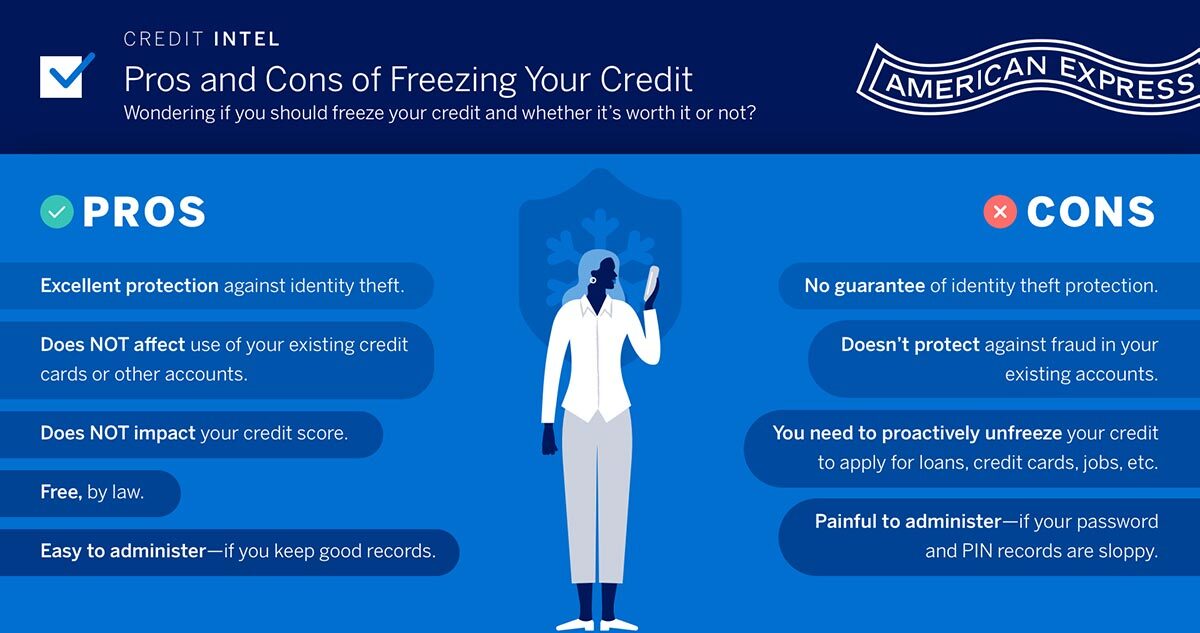
Guide to Credit Score
and Credit Reports
Learn more about your credit
score and how to manage it.
FEATURED ARTICLES
How to Remove Closed Accounts From a Credit Report
Learn how closed accounts on credit reports may impact your credit score. See how to remove closed accounts from your credit report in some cases.
What Is FICO Score 8?
Learn what FICO Score 8 is, how it works, and who uses your FICO Score to make lending decisions. Get tips for positively impacting your credit score today.
What Are the Different Credit Score Ranges?
Learn about credit score ranges by FICO® or VantageScore®. Credit scores range from 300 to 850, and a score starting in the high 600s can be considered good.
WHAT'S NEW
What Is a Rapid Rescore?
Rapid rescoring is a process that allows borrowers to quickly update their credit reports to reflect recent changes. This may help you to improve your credit scores for a mortgage application.
Money Muling: How to Spot and Avoid This Scam
Money muling is where individuals are recruited to transfer illegally obtained funds. Learn how to recognize the signs of money muling and protect yourself from falling victim to this scam.
When Did Credit Scores Start?
How did credit scores start? Learn how FICO® credit scores marked a new era of accurate, data-driven lending in 1989 and why scores are so crucial now.
ALL CREDIT REPORT ARTICLES
The Difference Between a Hard Credit Check and a Soft Credit Check
Understand the difference between a soft inquiry vs. hard inquiry before checking your credit report. See how they impact your credit score.
What Is a FICO Score? Do FICO Scores Really Matter?
Your FICO score is a three-digit number based on the info in your credit report. Learn what your FICO score is, why it matters, and how it’s calculated.
How to Get a Credit Card With No Credit History
Getting a credit card with no credit history can be tricky. See different options for getting a first-time credit card without credit history.
Why Do I Have Different Credit Scores?
Your credit score can vary depending on several factors. Find out why your credit scores may be different, depending on the credit scoring model used.
How to Remove Late Payments from Your Credit Report
Incorrect late payments could affect your credit reports for years. Learn how to remove late payments from your credit report to help benefit your credit.
How to Remove Closed Accounts From a Credit Report
Learn how closed accounts on credit reports may impact your credit score. See how to remove closed accounts from your credit report in some cases.
How to Dispute Your Credit Report
You may be able to dispute errors on your credit report. See how to dispute your credit report and what typically happens after you dispute something.
How Do Credit Checks for Employment Work?
Some employers do a credit check before hiring. See how credit checks for employment work, your rights, and what prospective employers may look for.
What Is FICO Score 8?
Learn what FICO Score 8 is, how it works, and who uses your FICO Score to make lending decisions. Get tips for positively impacting your credit score today.
What Are the Different Credit Score Ranges?
Learn about credit score ranges by FICO® or VantageScore®. Credit scores range from 300 to 850, and a score starting in the high 600s can be considered good.
How Long Do Closed Accounts Stay on Your Credit Report?
Closed accounts can stay on credit reports for seven to 10 years, and they may have either a positive or negative impact on your credit score.
How to Remove Negative Items From Your Credit Report
Learn how to remove negative items from your credit report. Steps include: identifying incorrect information on your credit report and filing a dispute.
What Is a Credit Report and Why Is it Important?
Understanding what a credit report is could be confusing. Learn what information a credit report contains and how to get your credit report for free.
How Is Your Credit Score Calculated?
Understanding the factors that determine your credit score calculation can help you to take steps to improve your score over time. Here’s what you need to know.
Can You Remove Unauthorized Hard Inquiries From Your Credit Report?
Unauthorized hard inquiries can negatively affect your credit score. Learn the steps you can take to remove hard inquiries from your credit report.
What Is a Tenant Credit Check?
A landlord may run a credit check on a potential tenant to see how well they handle money. Tenant screening may include rental history, income, and background checks.
When Did Credit Scores Start?
How did credit scores start? Learn how FICO® credit scores marked a new era of accurate, data-driven lending in 1989 and why scores are so crucial now.
How Long Do Hard Inquiries Stay On Your Credit Report?
Gain insights into how long hard credit inquiries typically stay on your credit report and discover their potential impact on your credit score.
What Does – and Doesn’t – Show up on Your Credit Report
Here’s a guide to what shows up on your credit report. Learn what’s included and not included in your report – and how it factors into your credit score.
How to Check Your Credit Score for Free
See how to check your credit score for free with your financial institution. You can also get a free credit score check with American Express MyCredit Guide.
Line of Credit vs Credit Card: Which One's Best?
Line of credit vs. credit card: which one is best when you need financing? Learn about the pros and cons of both and see which one is right for you.
Different Types of Credit Scores
You have different credit scores depending on the credit bureau and specific scoring model used by lenders. Learn more about the different types of credit scores.
How to Get a Free Credit Report
Enroll with American Express® MyCredit Guide to track your FICO® Score for free, or you can request a copy of your credit report from 3 credit bureaus once a year.
How Long Does Bankruptcy Stay on Your Credit Report?
How long a bankruptcy stays on a credit report varies, but it can last for years. Here are tips to manage credit before and after filing for bankruptcy.
What’s the Minimum Credit Score Needed to Get an FHA Loan?
Technically, FHA loans require a minimum credit score of 500. But many lenders require higher credit scores – especially if you want to qualify for a 3.5% down payment.
Setting Up a Fraud Alert on Your Credit Report
Is it helpful to set up a fraud alert on your credit report? Here’s why doing so could prevent or reduce instances of fraud in the future and protect your credit health.
What Is a Rapid Rescore?
Rapid rescoring is a process that allows borrowers to quickly update their credit reports to reflect recent changes. This may help you to improve your credit scores for a mortgage application.
10 Signs Your Identity May Have Been Stolen
Identity theft is fairly common, but it may take time to spot it. Here are 10 warning signs of identity theft and what to do if your identity is stolen.
What Credit Score Do You Need to Buy a Car?
Applying for a car loan? Lenders will check your credit history and credit score. Read about the score you need to buy a car—before applying.
Which Credit Score Is the Most Accurate?
Which credit score is the most accurate? FICO® and VantageScore® credit scores are equally accurate, based on the specific scoring model that’s being used.
Can You Remove Collections from Your Credit Report?
Collection accounts may stay on your credit report for up to seven years and might lower your credit score. Learn how you may be able to get them taken off your report.
Money Muling: How to Spot and Avoid This Scam
Money muling is where individuals are recruited to transfer illegally obtained funds. Learn how to recognize the signs of money muling and protect yourself from falling victim to this scam.
What Is a Credit Reference?
A credit reference is a document, person, or company that provides information on an individual's credit history. Lenders, landlords, and others can request them.
Who’s Got Your Credit Data? The Big 3 Credit Reporting Agencies
Your credit reports are put together by three national agencies: Equifax, Experian, and TransUnion. Learn all about them here.
FEATURED ARTICLES
Average Credit Scores by Age, State, and Income
Average credit scores tend to change based on age, state, and income. But none of these are actually used to calculate your score. Good credit habits matter most.
How Long Does It Take to Build Credit?
How long does it take to build credit from scratch? It may take at least six months. See tips to help build a strong foundation for your credit future.
How to Get a Perfect Credit Score
Wondering how to get a perfect credit score? It's possible, but not always feasible. See what impacts your score and what goes into a perfect credit score.
WHAT'S NEW
Can You Increase Your Credit Score by Paying Off Collections?
Learn how and when paying off collections could increase your credit score and see which factors influence how much your score may increase after paying.
Does Checking Your Credit Score Lower It?
Learn whether checking your own credit score affects your credit and explore how various soft and hard credit inquiries can impact your score over time.
What Is a Credit Builder Loan?
Credit builder loans can help people with limited or no credit history establish a credit profile. Learn how credit builder loans work and who they’re best for.
ALL IMPROVING YOUR CREDIT SCORE ARTICLES
Can You Build Credit With a Debit Card?
Using a debit card typically can’t help you establish or improve your credit score. Learn strategies you can use to help build credit instead.
How to Build Credit
Learn how to build credit, including strategies for establishing credit if you don’t have a credit history and tips to help you build credit over time.
8 Ways Credit Cards Can Help You Rebuild Your Credit
Credit cards can help you build your credit, but also lower your score if not used responsibly. Learn how you can rebuild your credit, starting today.
How to Build Your Credit from Scratch - Credit Cards Can Help
So, you have no credit history? See how to build your credit from scratch and the best credit cards to build credit to help you improve your score over time.
How to Build Credit: A Guide for College Students and Recent Graduates
Consider these personal finance tips to help you succeed after graduating college: build a credit history, use credit cards responsibly, and invest to benefit your future self.
How to Help Your Child Build Credit
Learn how to help your child build credit by adding them as an authorized user, teaching responsible spending habits, and monitoring their credit report.
What Factors Impact Your Credit Score?
Wondering what factors impact your credit score? See how payment history, amounts owed, length of credit history, and more can all impact your credit.
How to Improve Your Credit Score
Earning a top credit score takes time. See factors that can impact your score, and steps you can take to help improve your credit score over time.
Can You Increase Your Credit Score by Paying Off Collections?
Learn how and when paying off collections could increase your credit score and see which factors influence how much your score may increase after paying.
How a Credit Score Simulator Works
Learn how a credit score simulator can help you gauge the potential impact of certain actions on your credit score. See how credit score simulators work.
How to Get an Apartment With ‘Bad’ Credit
Find out how to get an apartment with 'bad' credit. Tips include: providing proof of income, offering to put more money down, and expanding your search.
What Could Impact Your Credit Score
What hurts your credit? See the potential impact of credit actions on your credit score so you can take steps to help build your credit over time.
What Is a Fair Credit Score?
A fair credit score falls within the 580-669 FICO range. Get tips for improving your credit and find the best credit cards for fair credit scores today.
Does Checking Your Credit Score Lower It?
Learn whether checking your own credit score affects your credit and explore how various soft and hard credit inquiries can impact your score over time.
How to Build Credit Without a Credit Card
Explore alternative ways to build credit without using a traditional credit card, like credit builder loans, secured loans, and becoming an authorized user.
Average Credit Scores by Age, State, and Income
Average credit scores tend to change based on age, state, and income. But none of these are actually used to calculate your score. Good credit habits matter most.
What Is a Credit Builder Loan?
Credit builder loans can help people with limited or no credit history establish a credit profile. Learn how credit builder loans work and who they’re best for.
Do Balance Transfers Hurt Your Credit?
Find out if a balance transfer hurts your credit. Get insights on balance transfers and see steps you can take to boost your credit health.
Is 700 a Good Credit Score?
A 700 credit score may be considered good. See what loans and other forms of credit you may be able to get with a 700 credit score.
How Long Does It Take to Build Credit?
How long does it take to build credit from scratch? It may take at least six months. See tips to help build a strong foundation for your credit future.
How Paying Bills Can Affect Your Credit Score
Paying a rent or phone bill late usually won’t affect credit scores, but if your debt goes into collections, scores may nosedive.
Is 800 a Good Credit Score?
Typically, an 800 credit score is considered to be excellent or exceptional credit. See some of the benefits of having an 800 credit score, or higher.
How to Get a Perfect Credit Score
Wondering how to get a perfect credit score? It's possible, but not always feasible. See what impacts your score and what goes into a perfect credit score.
What Credit Score Do You Need to Rent an Apartment?
Renting an apartment may require a good credit score, but landlord criteria can vary. Learn what influences your approval and how to boost your score.
What Is the Highest Credit Score?
By both FICO® and VantageScore® standards, the highest credit score is 850. See how a high credit score can benefit you, and tips for improving your credit.
Learn How to Build Credit at 18
Learn how to start building credit at 18 with secured or student credit cards, rent payments, and authorized user accounts. Get credit-building tips today.
Is Your Interest Rate Based on Your Credit Score?
Interest rates are based on many factors, including the type of loan and your creditworthiness. A higher credit score may allow you to save money on interest.
Does Refinancing Hurt Your Credit?
Learn how refinancing can temporarily affect your credit score and get our expert tips on how you can continue to build healthy credit in the long run.
What Is a Good Credit Score?
What is a good credit score? Good credit scores land in the 670-739 FICO range. Learn tips to make positive impacts on your credit score and borrow better.
What Is an Excellent Credit Score?
Learn why a high 700-800 score qualifies as an excellent credit score, see high score benefits, and learn strategies for strengthening your credit.
Is a 900 Credit Score Possible?
Is a 900 credit score possible for you? Get answers, see common score ranges, and get tips for making positive impacts on your credit score.
Does Leasing a Car Build Credit?
Leasing a car can help build your credit, but it can also hurt your credit score if you default. Learn more about how leasing a car affects your credit history.
Can You Get a Car Loan with Bad Credit?
It’s possible to buy a car when you have bad credit, but it can be harder to qualify for a loan. These tips may help low-credit buyers improve their financing options.
What Credit Score Is Needed to Lease a Car?
There’s no minimum credit score needed to lease a car, but your credit history still matters. Having good credit can help you get approved with more favorable lease terms.
Can Using Buy Now, Pay Later Improve My Credit?
Buy now, pay later arrangements could soon help you build your credit score – but only if you pay on time. Learn how to make these services work in your favor.
Do Student Loans Affect Credit Score?
Learn how student loans can affect your credit, how a history of on-time payments can help you in the long run, and what you should do if you’re unable to make a payment.
How to Maintain a Good Credit Score
Good credit can offer a number of benefits. See strategies that can help you to maintain a good credit score and learn more about managing your credit.
Why Did My Credit Score Drop?
Some of the reasons your credit score can go down are obvious – but other times, it’s less evident. Learn what could cause your credit score to drop.
What Is a Bad Credit Score?
“Bad” credit scores are more accurately described as below average, but credit scores aren’t permanent. There are plenty of ways to turn a score from bad to good.
Can Being an Authorized User Build Your Credit?
Becoming an authorized user on someone else’s credit card could help you build credit, but this will depend on a few different factors.
What Is a Cosigner for a Credit Card?
Learn about the role of a cosigner for a credit card. See responsibilities, benefits, and potential risks for both the primary cardholder and the cosigner.
FEATURED ARTICLES
What Credit Score Do You Need for a Credit Card?
What credit score do you need for a credit card? Learn about credit score requirements and see credit card options if your credit score needs improvement.
How to Freeze Your Credit
Learn how to freeze your credit online for free. See what information you may need to freeze your credit at all three credit bureaus.
What Is a Credit Tradeline?
A credit tradeline is the credit bureau term for an account on your credit report. Here are the three types of tradelines and what information each includes.
WHAT'S NEW
Different Types of Credit
Learn about common types of credit, how they work, and which credit account types can positively impact your credit score and financial future.
Does Applying for a Credit Card Negatively Impact Your Credit?
Does applying for a credit card hurt your credit? Get the facts on hard inquiries and tips for applying wisely to minimize the impact on your credit score.
Does Asking for a Credit Limit Increase Impact Credit Score?
Does asking for a credit increase hurt your score? Learn how hard vs. soft inquiries work and how a higher credit limit could even give your score a boost.
ALL MANAGING CREDIT ARTICLES
Does Applying for a Credit Card Negatively Impact Your Credit?
Does applying for a credit card hurt your credit? Get the facts on hard inquiries and tips for applying wisely to minimize the impact on your credit score.
What Credit Score Do You Need for a Credit Card?
What credit score do you need for a credit card? Learn about credit score requirements and see credit card options if your credit score needs improvement.
How Many Hard Inquiries Are Too Many?
See how many hard inquiries are too many and how they can affect your credit score. See tips to manage hard inquiries to help protect your credit.
Does Applying for Multiple Loans Hurt Your Credit Score?
Applying for loans can cause your credit score to dip, but usually only temporarily. Learn more about how loan applications may affect your credit score.
What is a Credit Score and How is it Defined?
Understanding how "credit score" is defined, how credit scores work, and how they're calculated can help you establish a positive financial future.
What Is Revolving Credit?
Revolving credit may allow you to borrow up to a set limit on an ongoing basis. You can repay it and borrow again. Learn how revolving credit works.
Does Asking for a Credit Limit Increase Impact Credit Score?
Does asking for a credit increase hurt your score? Learn how hard vs. soft inquiries work and how a higher credit limit could even give your score a boost.
How to Self-Report Good Information to Credit Bureaus
Wondering how to self-report to credit bureaus? See how authorizing key information to be included in your credit report may positively impact your score.
What Credit Score Do You Start With?
What does your credit score start at? Learn how to begin with a solid score and maintain it for the long-term. Start building your credit wisely.
What Is Identity Theft Monitoring?
Identity theft monitoring can alert you to suspicious activity. See how identity theft protection can help you take action to keep your data safe.
How Often Does Your Credit Score Update?
See when, why, and how often credit scores update. Learn how to track your credit score's progress for free and see how much your credit score may change.
Do Medical Bills Affect Your Credit
Understand how medical debt affects your credit, see how unpaid medical bills impact your scores, and take steps to help protect your credit report.
Credit Score vs Credit Report
Learn about credit scores and reports. See how they work together to give you a picture of your financial health. Learn how to check them for free.
What Is a Credit Limit and Why Does It Matter?
Your credit limit may be the maximum balance that you’re allowed to charge to your credit card. See how it can impact your credit score.
Credit Utilization Ratio: What You Should Know
Your credit utilization ratio is a factor in determining your credit score. See how your credit utilization ratio is calculated and how to lower it.
FICO Scores vs. Credit Scores
FICO® Scores are credit scores but not all scores are from FICO. Learn the difference between FICO Scores vs. credit scores to increase your borrowing power.
Different Types of Credit Protection
Learn how to protect your credit with different types of credit protection including credit insurance, credit monitoring, and identity theft protection.
Is Zero the Lowest Credit Score Possible?
You can’t have a zero credit score but you can have no credit score. Learn why living without a credit score can make some financial goals harder to achieve.
How Often Should You Check Your Credit Report and Score?
It's a good idea to check your credit report regularly in order to spot errors or signs of fraud. Learn how easy it is to check on your credit health.
FICO® Score Simulator from MyCredit Guide: How It Works
American Express® MyCredit Guide gives you access to the FICO® Score Simulator and FICO® Score Planner to help you build positive credit habits that support a healthy credit score.
Different Types of Credit
Learn about common types of credit, how they work, and which credit account types can positively impact your credit score and financial future.
What’s Closed-End Credit?
Closed-end credit is a set amount of money that you borrow for a specific time period. This differs from open-end credit, which you can draw from repeatedly.
Does Breaking a Lease Hurt Your Credit?
If you have to break a lease, there are ways to do it without hurting your credit. But if your landlord sends any unpaid debt to collections, it can have negative effects.
Ways to Protect Your Credit Score During Economic Shifts
Economic swings typically add to the challenge of protecting your credit score. But there are steps you can take to help maintain your credit – or even improve it.
What Is Credit Monitoring?
Learn about how credit monitoring services work, the types of protection you can get from them, and whether they’re effective.
How to Freeze Your Credit
Learn how to freeze your credit online for free. See what information you may need to freeze your credit at all three credit bureaus.
Credit Score Myths vs. Facts
Myths persist about what a credit score is, how scores can be improved, and who can see them. It pays to separate fact from fiction.
Does Closing a Credit Card Hurt Your Credit?
Closing a credit card account can negatively affect your credit score, but by how much? See how to decide whether you should close a credit card.
What Is a Line of Credit and How Does It Work?
A personal line of credit might be an effective way to manage temporary cash-flow problems. Learn what a line of credit is and what to know before applying for one.
What Is a Credit Freeze? Should I Freeze My Credit?
Wondering if you should freeze your credit and whether it’s worth it or not? Here is why you may consider freezing your credit.
How to Unfreeze Credit for Free
It’s time to unfreeze your credit, but you’re not sure exactly what to do. Here’s how to unfreeze for free at all 3 credit bureaus.
What Is Credit History? An Intro Guide
Credit history is the record of how you repay your credit cards, loans, and other debts. Learn what it takes to establish good credit with this intro to credit history.
What Affects Your Credit Score?
There are many factors that can influence your credit score. Find out how late payments, debt, and credit history can impact your score.
Does an Overdraft Affect Your Credit Score?
Overdrafts won’t typically impact your credit score, but in some cases, they can. Learn how overdrafts work and the impact they could have on your credit.
What Are the Five Cs of Credit?
The five Cs of credit are character, capacity, capital, collateral, and conditions. Lenders use these factors to decide whether to extend credit to an individual.
DIY Credit Reports Reflect New Credit Rating Trends
Millions of Americans lack access to credit. A new DIY credit reporting tool is among the initiatives aiming to give them a new chance.
What Is a Credit Tradeline?
A credit tradeline is the credit bureau term for an account on your credit report. Here are the three types of tradelines and what information each includes.
How, Where, and Why to Check Your Credit Score
Enroll in American Express® MyCredit Guide to access your Experian® credit report and explore credit building tools any time.
Do Late Student Loan Payments Hurt Your Score?
Late student loan payments will taint your credit score once they’re reported to the credit bureaus, but deferment or forbearance programs can help mitigate damage.
Should You Use an Identity Theft Protection Service?
Identity theft protection services can help you safeguard your identity for a fee. While there are ways to protect yourself, many feel that such services are worth the cost.
Does Prequalification Affect Your Credit Score?
Learn how prequalification for loans or credit cards can impact your credit score. See situations where it could make sense to get prequalified.
How Long Does a Repo Stay on Your Credit Report?
A repossession, or repo, happens when a lender seizes property after a debt goes unpaid. Learn more about what a repo is – and how and why to avoid one.
What Is Open-End Credit?
Open-end credit is also revolving credit that a borrower can draw from repeatedly. Learn how it works and how it could impact your credit score.
EXPLORE TOPICS BY LIFE EVENT
The material made available for you on this website, Credit Intel, is for informational purposes only and intended for U.S. residents and is not intended to provide legal, tax or financial advice. If you have questions, please consult your own professional legal, tax and financial advisors.





























































































































